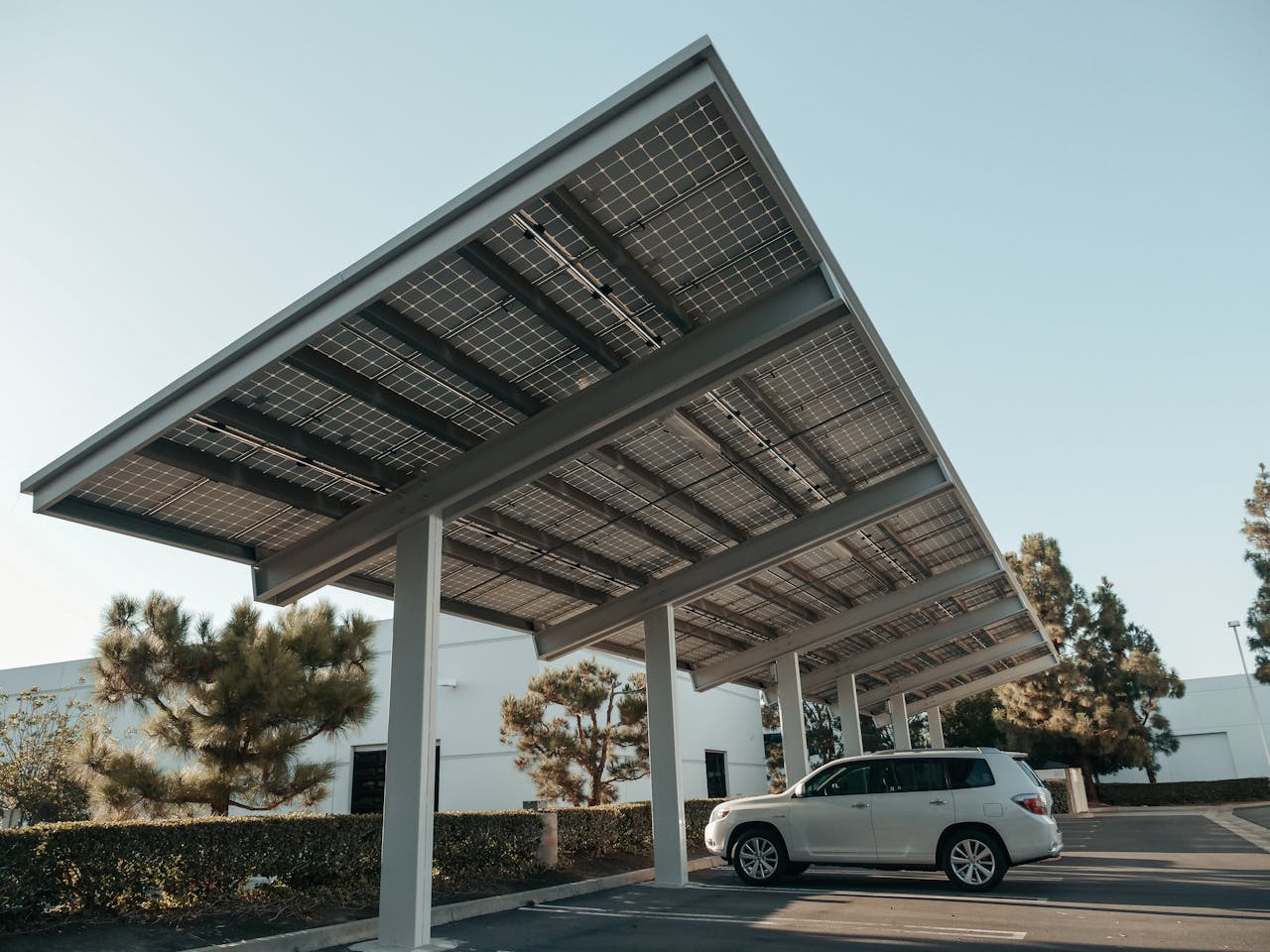Your carport needs a foundation. The foundation is as important as the structure’s frame. The foundation does more than keep your carport in place; it also helps prevent flooding and other types of damage.
The type of foundation you need depends on a few factors like your climate and the carport’s location. So, what’s the best foundation for carports? We’ll take a look at the various foundation types so you can make the best choice.
Types of Carport Foundations
Here’s a look at the common types of foundations used for carports. Remember, not all may be suitable for your area.
Concrete Slabs
A popular type of carport foundation is a poured concrete slab. Concrete is relatively inexpensive and long-lasting. The material is fire-resistant and almost impossible for insects like termites to damage. Thanks to its durability, a concrete slab can last for years. The foundation may even outlast the carport.
If you’re trying to reduce your environmental impact, go with green concrete. Yes, it’s a little pricier but green concrete is also eco-friendly.
So, when is concrete not the best option? If you live in an area that’s prone to frequent freezes and thaws, concrete can be a problem. The material can shift and crack resulting in expensive repairs. You also need to account for the drying time.
Gravel Foundations
If budget is a concern or your area is prone to flooding, a gravel foundation may be the way to go. Gravel is inexpensive and you can probably level and spread the gravel without calling in professional help.
A gravel foundation works great in flood-prone areas. The gravel allows water to drain easily and this can prevent damage like rust and corrosion from becoming problems. Rust can be a particular problem with metal carports.
The potential downside to gravel foundations is usually maintenance. You should plan on weeding the area fairly frequently. If you don’t install a border around the foundation, you may need to replace the gravel every year or so. You can easily create a border using wood beams. The border also helps improve the carport’s overall appearance.
Wood Foundations
Gaining popularity in the 1960s, wood foundations can support almost any carport regardless of its weight or size. Pressure-treated wood beams are also relatively easy to install. You should be able to turn it into an afternoon DIY project.
Some types of wood like cedar, redwood, and cypress are naturally insect-resistant. Some locations are more prone to issues with insects like termites and carpenter ants than others. However, woods like cedar are also more expensive. If you’re working with a tight budget, you may want to consider going with a different type of foundation.
Wood foundations may not be the best choice for areas with high rainfalls or year-round humidity. Mold can quickly become an issue, and this can create health risks.
Stone Foundations
A foundation made from stone is durable and can support heavier weights without the risk of cracking. While you can lay only large stones, this can quickly get expensive. Most stone foundations are also mixed with other materials like gravel.
Even though stone foundations look great, installing one usually isn’t a DIY job. Mansory work typically requires professionals, and this is another expense on top of the cost of the materials.
Basement Foundation
If cost isn’t a primary concern and you need plenty of storage space, you may want to choose a basement foundation. However, don’t expect a basement foundation to be finished in a day or two. This is a time-consuming and labor-intensive project.
A crew will need to excavate the area, and this means bringing in heavy equipment. The basement area also needs insulation to help prevent issues with flooding after it rains. However, the good news is that after the foundation is completed, you have a ton of additional storage space. This can help ensure you can always fit your vehicle in the carport.
Frequently Asked Questions About Carport Foundations
Even though you know a little more about carport foundations, you probably still have a few questions. Here’s a look at some of the most frequently asked questions about carport foundations.
Which Type of Foundation is the Cheapest?
Gravel foundations are usually the least expensive, followed by poured concrete slabs. However, the carport’s size also impacts costs.
If you’re installing a smaller carport like one that only fits one vehicle, a gravel foundation may be the most cost-effective option. Concrete slabs are generally less expensive when the foundation needs to support a larger carport.
What’s the Difference Between Footings and Foundations?
Sometimes the two terms can seem like they’re being used interchangeably but they refer to completely different things. Footings are part of your foundation. Your footings are the part of the foundation touching the ground.
An easy explanation is that your foundation supports your carport. The footings are what support the foundation.
Are There Eco-Friendly Foundations for Carports?
You may be surprised to learn that you have a few options if you’re searching for an eco-friendly carport foundation.
Builders are using green concrete for everything from countertops to driveways and carport foundations. Eco-friendly concrete is a little more expensive but it may be worth the cost if you’re committed to reducing your carbon footprint.
Gravel is another eco-friendly option. While wood is typically considered a green material, this can change after it’s been treated. You may want to check with your local building material supplier to learn more about the eco-friendly options in your area.
The Right Carport Foundation Can Make a Difference
Choosing the right foundation for your carport can be confusing. You may love the look of a wood beam foundation but have insect issues in your area. Gravel is ideal for areas prone to flooding, while concrete is durable and relatively inexpensive.
Carefully consider your climate, and the size of your carport, before making a decision. Doing so can help ensure you choose the right foundation for your carport.

































